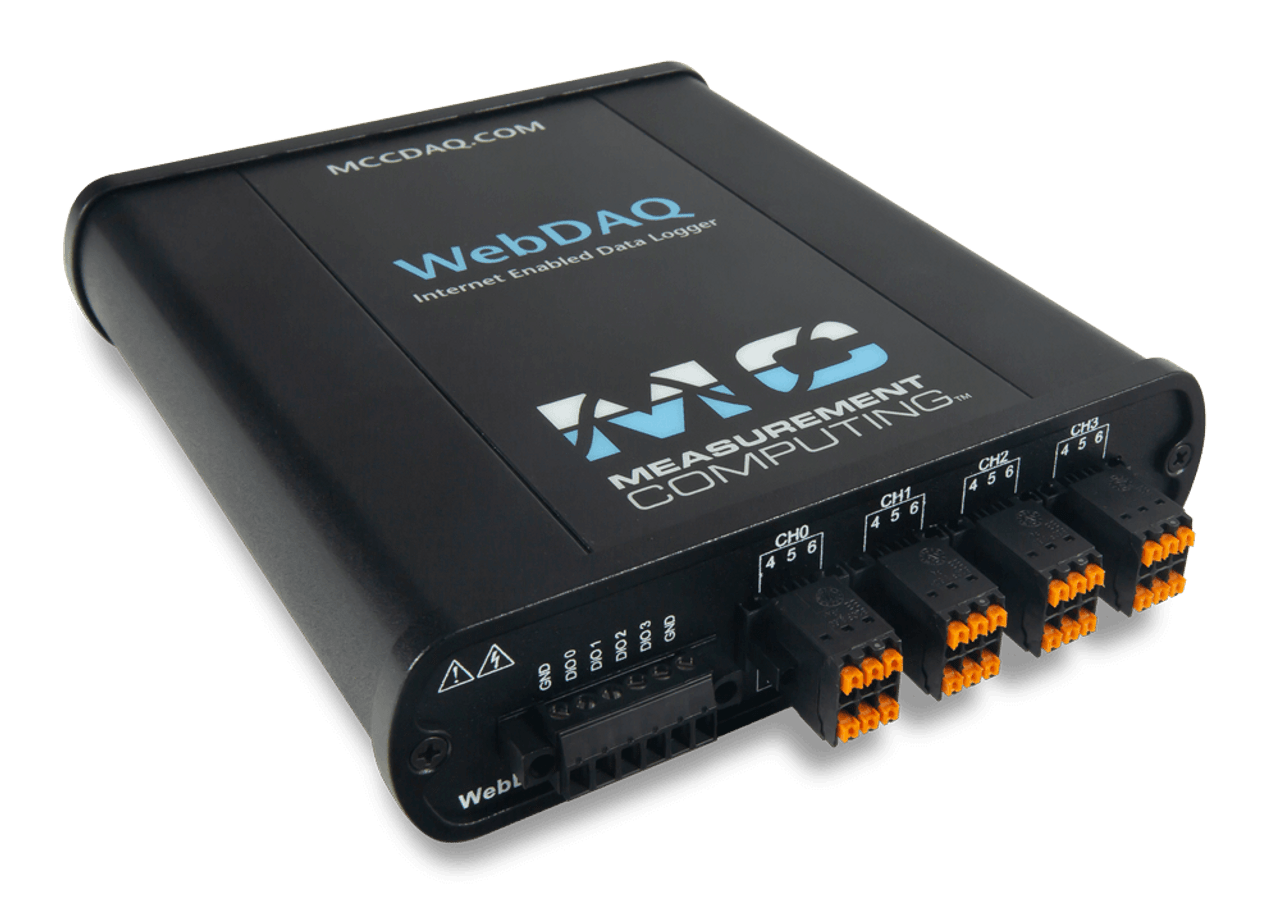A data acquisition device is designed to work with a computer to capture and store data. On the other hand, a data logger is a data acquisition device and computer that are in one box. They are the unsung heroes in many industries, including those where data monitoring is crucial. These compact electronic devices are designed to monitor and record data over time automatically. Imagine a tiny, tireless assistant that watches everything from temperature and humidity to pressure and vibration day or night. Data loggers play a pivotal role in various sectors by providing a reliable and efficient way to collect critical data, making them an invaluable investment for any industry. Some require additional software to set up, while others do not. The WebDAQ series from Digilent does not require additional software. All that is needed to set up a WebDAQ is an Internet Browser like Edge, Chrome, and Firefox, and it does not matter if it is Windows, Mac, or Linux.
Detailed Information for Product Models and Specifications
When choosing a data logger, understanding its specifications is key. Here’s a breakdown of some important factors to consider:
Data Storage Capacity: This determines how much data the logger can hold before needing to be downloaded or switched out. The WebDAQ can log to its internal 3 GB of storage or to a remote drive via FTP.
Sampling Rate: This refers to the frequency at which data is collected. Higher sampling rates capture more detail but require more storage space.
Sensor Compatibility: Ensure the logger works with the sensors you need, such as temperature probes, light sensors, or accelerometers. Digilent offers three data loggers, or you can you build your own using daqhats and a Raspberry Pi that are compatible with various sensor types.
Connectivity Options: Data loggers can connect to computers via USB, communicate wirelessly through Bluetooth or Wi-Fi, or even transmit data over cellular networks. Choose the connectivity option that best suits your application.
Unique Capabilities and Advanced Functionalities: Some data loggers offer advanced features like alarms for exceeding set thresholds or ruggedized casings for harsh environments. Digilent’s data logger selection has a variety of options with unique functionalities.
Features and Benefits
Digilent data loggers are designed with user-friendliness in mind. They typically feature:
Easy-to-use Interface: Intuitive interfaces allow for effortless setup, configuration, and data retrieval.
Compact and Portable Design: Their small size and lightweight construction make them ideal for field applications and mobile data collection.
Model-Specific Features: Different data logger models offer unique advantages. Some may have built-in displays for real-time data visualization, while others boast extended logging durations or advanced data security features.
Enhanced User Experience and Efficiency: These features combine to simplify data collection, improve data quality, and ultimately save time and resources.
Use Cases
Data loggers find application in numerous fields:
Industrial Applications:
- Manufacturing Process Optimization: Monitor key parameters like temperature, pressure, and vibration to optimize production lines and ensure consistent product quality.
- Regulatory Compliance: Data loggers provide reliable documentation for meeting environmental or safety regulations in various industries.
- Preventive Maintenance: Schedule maintenance based on collected data to prevent equipment failures and costly downtime.
Environmental Monitoring:
- Climate Research: Record climatic data like temperature, humidity, and precipitation for long-term research projects.
- Environmental Tracking: Monitor changes in air quality, noise levels, or water pollution for environmental impact studies.
- Remote Ecological Monitoring: Track data in remote locations, essential for studying wildlife or ecological processes.
Research and Development:
- Scientific Experimentation: Capture precise data sets for scientific experiments in laboratories or field studies.
- Trend and Pattern Analysis: Analyze collected data to identify trends, correlations, and patterns in controlled environments.
- Customizable Data Logging: Program data loggers to meet specific research needs, ensuring flexibility for unique projects.
FAQ
Here are some commonly asked questions about data loggers:
How do I choose the right data logger model for my specific needs?
Consider the type of data you want to collect, the desired sampling rate, storage capacity, and environmental factors. Explore Digilent’s data logger selection or contact our technical support team on our forum for personalized recommendations.
How can I get customer support or assistance with technical inquiries?
Digilent is committed to providing exceptional customer support. We offer comprehensive online resources, including user manuals, application notes, and troubleshooting guides. You can also reach our technical support team on our forum.
Conclusion
Data loggers are powerful tools that simplify data collection across various industries. By understanding their specifications, features, and functionalities, you can leverage their capabilities to streamline your data acquisition process. Whether you’re optimizing industrial processes, conducting scientific research, or monitoring environmental conditions, a data logger can be your reliable partner in gathering crucial information. Explore Digilent’s selection of data loggers and discover how we can empower your next project.


